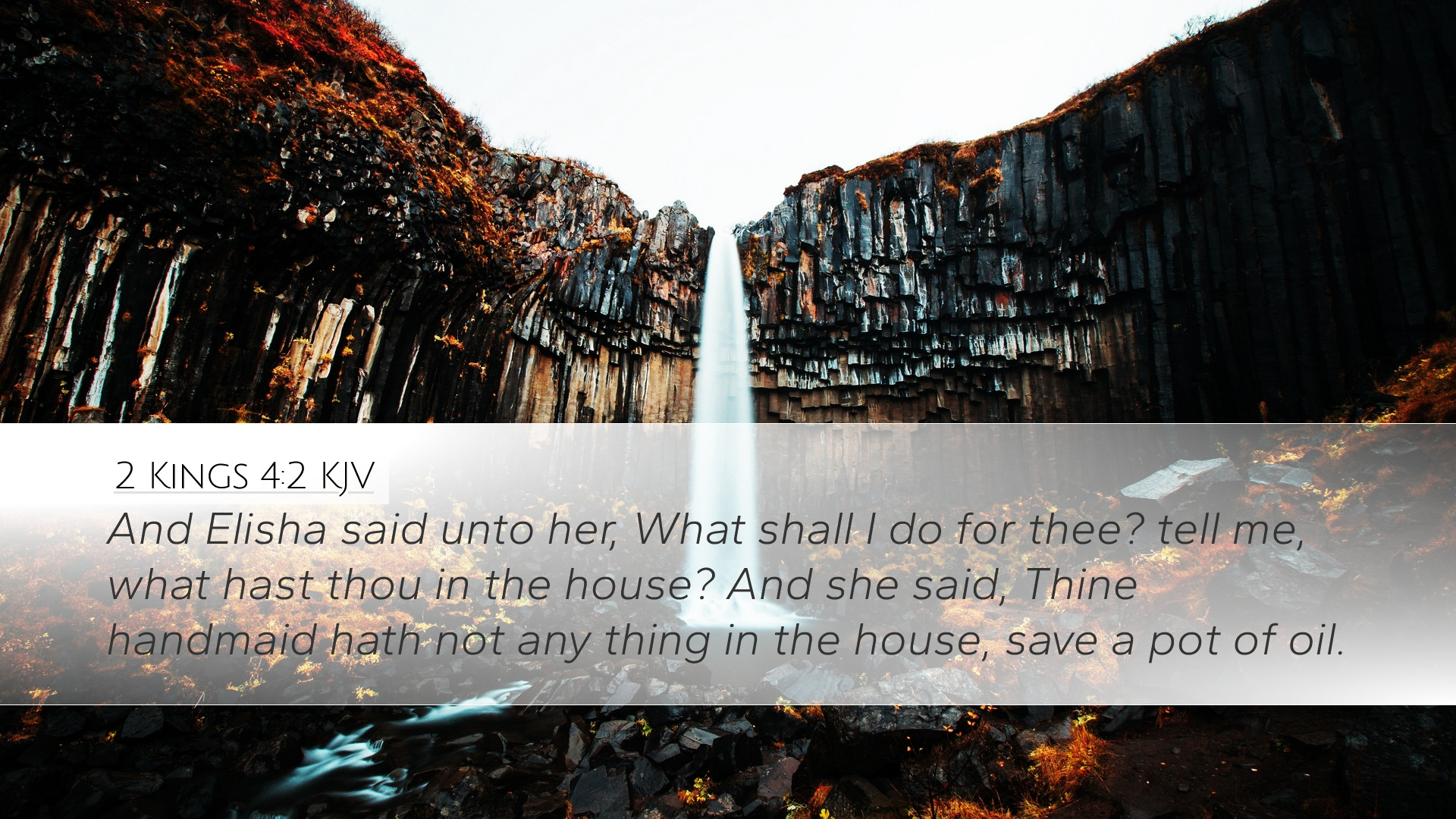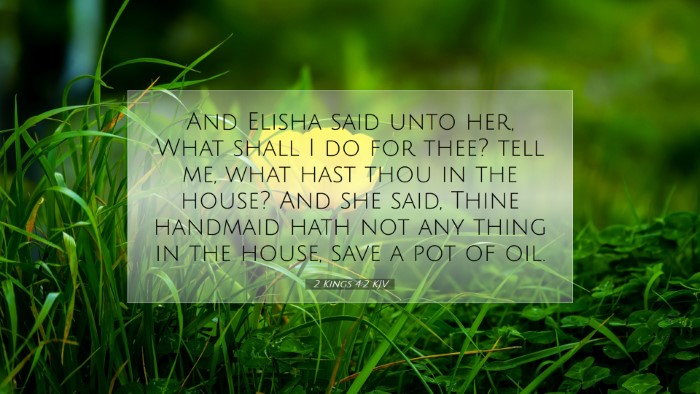Commentary on 2 Kings 4:2
Verse: "And Elisha said unto her, What shall I do for thee? tell me, what hast thou in the house? And she said, Thy handmaid hath not any thing in the house, save a pot of oil."
Introduction
The passage of 2 Kings 4:2 presents a profound interaction between the prophet Elisha and a widow facing a dire situation. This verse serves as a critical point in understanding both the prophet's ministry and the divine assistance provided to those in need. The widow's plight and Elisha's inquiry reveal rich theological insights pertinent to pastors, students, theologians, and Bible scholars.
Contextual Analysis
In this chapter of 2 Kings, the narrative focuses on the ministry of the prophet Elisha, who succeeded Elijah. This widow represents the marginalized and destitute in society, seeking help in a time of crisis.
Matthew Henry's Commentary highlights that the widow's condition is emblematic of Israel's plight during a time of spiritual and social desolation. The historical backdrop includes the compounded sufferings following the loss of her husband, one of the sons of the prophets, and the imminent threat from creditors.
The Inquiry of Elisha
Elisha’s question, “What shall I do for thee?” is fundamental in pastoral care. It underscores the importance of understanding the specific needs of those who seek help.
- Albert Barnes suggests that Elisha's inquiry encourages the widow to articulate her situation, indicating that recognizing one's needs is crucial for receiving assistance.
- Adam Clarke elaborates on the spiritual significance of this question, interpreting it as a call to self-awareness and trust in divine provision.
The Widow’s Response
The widow's response, “Thy handmaid hath not any thing in the house, save a pot of oil,” introduces a theme of scarcity juxtaposed with potential abundance. The pot of oil represents both desolation and the seed of God's provision.
Matthew Henry comments on how the seemingly insignificant pot of oil symbolizes hope and divine grace. This echoes throughout Scripture, where God often uses the humble and small to accomplish great things.
- It invites a contemplation of faith – demonstrating how, in times of lack, one can trust in God’s ability to multiply even the smallest resources.
- Albert Barnes adds that the widow's acknowledgment of her poverty sets the stage for God's miraculous intervention, reminding us that divine aid often follows an honest confession of need.
Theological Implications
This encounter illustrates several theological principles:
- Dependence Upon God: The widow's situation is a metaphor for the believer's reliance on God. Her acknowledgment of need is a posture of faith that invites divine intervention.
- The Role of Prophetic Ministry: Elisha's role as a mediator reflects the broader biblical theme of God working through His prophets to bring help and hope to His people.
- God’s Provision: The pot of oil symbolizes divine potential in the face of adversity, emphasizing that God often provides in ways that may initially appear insignificant.
Practical Applications
For modern applications, this text challenges individuals and congregations to consider several points:
- Self-Assessment: Like the widow, believers are encouraged to assess their spiritual and material resources in light of their needs.
- Seeking Help: The importance of seeking guidance and support from spiritual leaders in times of distress cannot be overstated, as exemplified by the widow's approach to Elisha.
- Faith in Action: The transformation from scarcity to abundance can only occur through an active faith that engages with God's promises and seeks to utilize all available resources, no matter how small.
Conclusion
The interaction between Elisha and the widow in 2 Kings 4:2 encapsulates key insights for God's provision, the importance of recognizing individual needs, and the role of faith in times of crisis. As we reflect on this passage, we are reminded that God is actively involved in the lives of His people, often transforming our meager offerings into vessels of abundance.


